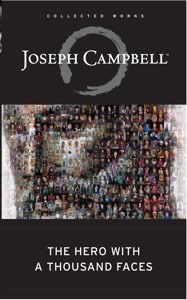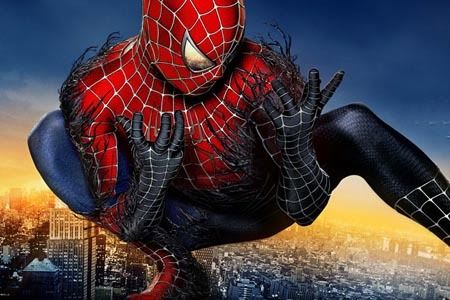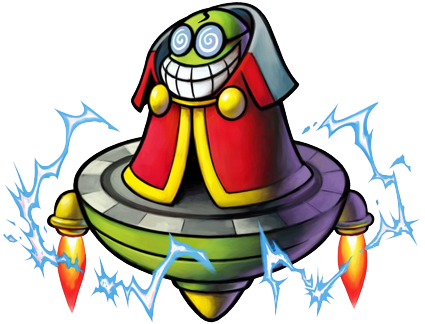
Wow. Been a while since I’ve done one of these. I’m up to my eyeballs in code and have some deadlines breathing down my neck, so have the first half of an attempt I made at a gothic supernatural horror short. Enjoy.
Deacon Jackson, private investigator and (by all accounts) generally useless bastard, was passed out on his desk. An empty bottle of Jack Daniels lay on it’s side on the floor by the wastebasket, and a lowball glass was in his hand. He drooled a little, a tiny puddle of spittle having formed on the photo of a man on a cell phone. Allison closed the door gently and examined the picture. She knew the man’s picture, from the vice department: he was a suspect in a case where a man was beating prostitutes. According to Jackson’s notes, he was also cheating on his wife. Not terribly surprising. Smirking a bit, she grabbed the photo and its associated files and yanked them out from under Jackson’s dirty blonde head.
There was a satisfying thump.
“Huh? Wuzzat?” he babbled incoherently, looking around. His green eyes focused on her smiling face and he seemed to regain his composure a little. “Ah. Detective Daniels. What brings you to my doorstep?” He wiped his eyes and looked at the file. “Doing vice’s dirty work? What, is homicide too boring for you now?”
“No, though I see you’re still up to your old tricks,” she replied, laying the file back on his desk. “Chasing down wayward husbands and desperate housewives. I’m sure you get something out of it.”
“Sure do. Couple hundred an hour, plus expenses.”
She blinked. “You charge that much?”
He shrugged. “Lots of rich folk want their work done by someone who doesn’t travel in their circles. And I certainly don’t do that. I mean, come on, look at me.” He held out his arms to indicate his slightly threadbare gray sweatshirt stained in several places and his three-day-old stubble. Daniels shook her head.
“I don’t either, but I can still appreciate a Prada.”
“Of course you can, you’re a woman.” He stood and stretched, looking out on the street, turning his back to her. “But you didn’t come down here to discuss the nuances of my work, or my fees. Unless you’ve gotten married since I saw you last and your husband’s running around on you. In which case I might give you a discount seeing as you’re one of the city’s finest.”
“Finest what?” she asked coyly. Before he could respond, there was the sound of something hitting the desk. Jackson turned around and looked down. Sitting on the blotter was a small plastic evidence bag. Contained inside was something that could’ve been a patch of leather if it wasn’t far, far too pale. He picked it up gingerly and felt the slightly gelatinous consistence of the other side of it – this was relatively fresh. On the pale side of the patch was some sort of brand or marking, a dark circle inscribing a star with 13 points. Jackson kept his face impassive as he turned the bag over, and confirmed that the backside of the patch of leather-like material was, in fact, bloody and gory. He felt bile rise in his throat.
Daniels watched his face carefully as he set it back down, bloody side up. She had tried very hard not to let on how tired she was from this case. This was the eleventh murder of this type so far in the last two weeks, as far as anybody could tell. Forensics was still working around the clock to nail down a timetable. But the common thread was the murderer’s methods and these odd markings, and according to Jackson’s file, he might be able to shed some light on it. Besides, Allison Daniels had become a detective partially because she liked observing people. Some might call her a little voyeuristic in that way. But she simply had a knack for watching someone’s face or body language and knowing what they were thinking. It was how she’d known her last three boyfriends had been thinking of other women while in bed with her. Somehow, however, Jackson was inscrutable to her. He was like a dark statue. Not what she expected from a cut-rate private dick.
“Can’t help you,” he said, and sat back down. He steepled his fingers and stared at the small evidence bag and its grisly contents. Behind his jade eyes embers of a fire seemed to spark. He blinked heavily, with effort, as if trying to force something away from his conscious mind. Allison decided to take a chance and maybe pry out of him whatever he was hiding. She picked up the bag and thrust the circle-side in his face.
“You can’t shut me out,” she told him. “I’ve read your file, Jackson. I know the circles you used to travel in, all those years ago, before you dropped off the face of the earth only to wash up here, keeping yourself busy with the vices and hypocrisy of the rich. I know you used to be Deacon H-”
“Do not say that name!” Deacon bellowed, shooting to his feet, glaring at Allison. The power behind his voice, the sudden belligerence of his manner, the almost-eldritch fire in his emerald eyes, rooted the detective to the spot. They blinked at each other for a moment. Then, slowly, Deacon sat back down, reaching into his desk drawer for a fresh bottle of whiskey. “Those days are dead. My past is dead. You’re a homicide detective. But the case of my past is very, very cold. You won’t get anything out of it but trouble and nightmares.” He poured himself a glass, and downed it in one gulp, then looked at the evidence bag. “Where’d you find this?”
“Off the back of a 24-year-old woman on the other side of town,” Allison told him, wrenching her mind back to the case at hand rather than dwelling on the dour look on his face or the way his eyes seemed so haunted. Something about this whole business had spooked him. “Evidence showed signs of a struggle.” She handed him a sheaf of photos. “Those markings on her wrists and ankles are consistent with razor wire, according to forensics. She wasn’t gagged – wherever it happened, she was probably screaming. They branded her in 12 other places, carved this off of her back between her shoulder blades, and killed her with a single stab wound on the corresponding side of her chest. Forensics found no fibers in the wound so she was naked at the time. It all points towards some sort of…”
“Ritual,” Deacon finished, in that same dark voice. His eyes danced over the photos, and Allison studied his face. There seemed to be a conflict inside of him. As if part of him recognized what was happening, and wanted to help, but the other part of him was too scared to admit it and was pulling away. Either way, he knew something, and it could be crucial to this case. She had to hold back a flood of questions in her mind. Would there be more murders? What sort of religion was being practiced here? And why was a man who had no trouble giving information to rich, influential people that might kill their spouses and get away with it so afraid of what he was seeing? Finally, he handed her the photos back.
“What do you want from me?” he asked her.
“Help,” she replied frankly. “We’re baffled. There have been 10 other victims like this and I finally have gotten a chance to see one fresh. Normally we don’t find them for days.”
Deacon just nodded. He poured himself another drink.
“Well? Can you help me?”
He didn’t respond. She leaned towards him. His eyes did not go to the tempting view down her half-open blouse nor to her sky-blue eyes framed by wayward brown curls that had escaped the bun held on the back of her head by a pair of black lacquered pins. He simply stared into his lowball glass as if it held all the answers in the universe. She was watching him very closely now, and he was choosing his words carefully. She could see it in his face. He was making a big decision, at least for him.
“I don’t want any part of this,” he said at length. His green eyes finally swept up towards her. “And neither do you. If you’re as smart as I know you are, Detective, you’ll drop this case, pack up, and leave town tonight. Right now.” He plucked one of the photos seemingly at random out of the stack she held and dropped it on the desk. It showed one of the victim’s wrists, and his finger stabbed a chalk line on the floor. “That wasn’t from the outline. If you go back to the crime scene and lift the carpet there’s a lot more chalk there. And you’ll probably find gunpowder scattered around the place, too, and this black burn mark wasn’t there when the tenant moved in, I guarantee it. You don’t want to know what it all means. Your mind isn’t ready. It may never be ready. You don’t want it to be ready. Get out of my office, get out of my town, get out of my life, and take this shit with you.”
She looked at him as he sat back down, feeling genuinely hurt at his words. Something about his manner told her that he wasn’t just being a dick for the sake of being a dick, there was something going on that was truly terrifying to him and he was doing this to try and protect her. She sighed, straightened, and gathered up her evidence.
“I may be back to consult with you again,” she said flatly, like a traffic cop telling a speeder they were getting a ticket. Deacon shrugged.
“I’ll be consulting your Uncle Jack, Detective Daniels,” he replied ruefully, and raised his lowball glass to her before draining it’s contents. She walked out and slammed the door behind her. Deacon sat for a long silent moment. Then, he leaned forward and grabbed a pen from his desk and a notepad. He drew the circle and the star within it perfectly, and searched his memory for a moment. The patch of skin’s brand had born one more feature Allison hadn’t pointed out: 11 fine dots, like pinpricks, on the outside of the circle. He had seen this before. His skin burned and his perceptions drew dark. He had the sinking feeling in his gut that he was right, and knew exactly what was going on. The question was why.
He leaned back and wracked his brain. His green eyes focused on the ceiling fan as it lazily sliced and circulated the air over and over. He had only brushed against this symbol, this knowledge, a few times in the dozen years since that fateful night. He closed his eyes and could still remember vividly, as if it had just happened: the palpable anticipation, his friends and him chanting, the smoldering magma-like eyes as they drank him in, the soft velvety laugh caressing his ears and wrapping around him like something about to consume him in a single, warm, sticky moment…
His eyes snapped open. He’d have to tell Allison. It was time to blow the dust off his police scanner… and shave.
But first, he’d finish the bottle he’d just opened. No sense in leaving it unattended now that’d he’d gone to the trouble of pouring a drink for himself. Besides, it might be the last chance he got.
* * * * * * * * * * * * *
The flashes hurt Allison’s eyes. They always did. She had been diagnosed with minor epilepsy, and was on medication for it, but she still got a little edgy around flashbulbs. Ever since her father had shown her his prize possession, the M-16 he’d carried through two tours of Vietnam, firing on fully automatic, bright flashes of light had caused her to convulse herself into unconsciousness. It’s why she carried a revolver as opposed to one of the newer automatic sidearms; that, and she liked the weight and feel of her old Colt .357 Trooper, the first gun she’d ever herself fired. It’d stuck with her through ten years of dedicated police service. But this was the first time she’d dealt with a serial crime of this magnitude. She turned away from the CSI photographer and looked over the scene.
Tonight’s victim, David Stratham, was 25 years old, male, a stockbroker and had no prior arrest record, unlike the previous night’s former juvenile delinquent trying to go straight. Like the previous victim, he’d been tied down with razor wire – to his own kitchen table, no less, after a black velvet tablecloth had been laid down. The struggle had been intense, with sprays of blood along the walls and ceiling. Like the other eleven victims, Dave’d been branded, but this time there were 12 burns instead of eleven. And again, the 12th brand had been torn off his skin. Wearing latex gloves, Allison gingerly tipped the body onto one side and examined the red and raw-looking patch just over his spine between his shoulder blades. About a quarter of an inch of flesh overall was missing. The wayward skin had laid over the fatal wound, presumably after he’d bled to death. Again, with the lack of cloth fibers anywhere on or in the body, David had been naked when he’d died. And the tools that had been used on him, from the razor wire to whatever blades had cut away his skin and stabbed him in the heart, had been very sharp.
He died naked, screaming, and afraid, Allison thought with a shudder. She flipped through her small notebook and the notes she’d scribbled about their other victims. They’d been left in other places – dumpsters, behind buildings, one in the backseat of a parked car. This one had been killed in his home. That didn’t make sense. Was the killer (or killers) growing more desperate? Was the insanity deepening?
“Not sure what to make of it, Detective,” said one of the guys from CSI. “Still don’t know what all this chalk is doing on the floor.”
“Is it like last night?” she asked. After her abortive attempt to enlist Jackson, she’d gone back and, sure enough, had found more chalk lines and scribbles under the carpeting, along with burn marks and trace amounts of gunpowder.
“Sort of,” the CSI expert replied. “Still only bits and pieces, nothing really coherent. And we have no idea what the gunpowder has to do with anything.”
“That’s because everything important was obliterated long before you found the poor bastard,” came a voice behind Allison. “They’re laughing at you.”
She turned, surprised, to find Deacon Jackson smirking ruefully at her. He was clean-shaven and better-dressed, in a dark button-down shirt, white tie, and soft leather coat. He stepped past her with a nod and examined the scene. She cleared her throat, reminding herself that she was this was her case. She’d taken it over from the guy they’d transferred upstate and it was hers.
“Nice to see you sober,” she quipped, but he ignored her. He knelt by the body and pulled on a pair of latex gloves. Turning the victim’s arm towards him slowly, he looked at the underside of the wrist, at one of the brands which had been made near where the razor wire had held the man down. One of the CSI workers was about to protest when Allison held up her hand and shook her head at him.
“What is it, Deacon?” she asked quietly, not wanting to disturb the man since he’d showed up of his own free will, and apparently with no prompting or even foreknowledge of where the murder had taken place. He seemed not to hear her, running white-gloved fingers over the brand. He leaned over and reached out, taking the black velvet tablecloth between his fingers and nodded to himself a little. Then he stood and fixed his emerald gaze on her.
“He’s 25 years old, right?” he asked pointedly, and Allison blinked at him.
“Yes… er… how did you know that?” managed one of the CSI workers. Deacon made a face and looked at the floorboards, running the toe of his boot over the chalk lines they’d discovered. The CSI geeks flushed and began to protest when the private investigator held up his hand.
“Like I said,” he began, “the killers obliterated anything useful before you arrived. They knew you’d find the body. They wanted you to. They know you’ve been on their trail and they’re beginning to play on your fear. They believe it gives them power.”
“They?” Allison asked. He looked at her and nodded.
“There are 13 of them.”
The room was silent. Deacon continued.
“More than likely, two of them doing most of the directing. Masterminds, if you will. The other 11 are likely pliable young people just looking to fit in, or got into it thinking this stuff was cool and ended up brainwashed. They’re probably made to do most of the dirty work. But one of the two – probably the male – delivers the sacrificial blow as the female holds him down. That’s how it’s usually done.”
“You sound like you speak from experience,” Allison said quietly. Deacon said nothing, but headed for the door. Allison blinked.
“I’m sorry,” she began, but he held up his hand.
“Carry on with investigating the scene but I doubt you’ll turn much more up. Detective Daniels, I want you to meet me at the library around the corner from my office at noon tomorrow. There’s something I need to show you.”
He was gone. Allison just stared at the open door for a moment, then shook her head and got back to work. She had a lot to do if she was going to get up in time to meet him.
* * * * * * * * * * * * *
It was raining as Allison Daniels ran up the steps into the modest library. Traffic had been light but she’d woken up late, exhausted from comparing notes on the 12 victims so far. Deacon was waiting for her, looking much like he had the night before as if the passage of the last few hours hadn’t touched him. He was awake, alert, and watching her every movement.
“You’re late,” he finally said, and she nodded, shaking water out of her curls.
“I know, I’m sorry,” she replied, “but I noticed something. Deacon, the first victim was a 14-year-old girl. Next, a 15-year-old boy. Then a 16-year-old girl. And so on and so forth until the 25-year-old man last night. This has been going on for two weeks. You know something, and you need to tell me.”
He turned on his heel and headed into the library. She followed him, resisting the urge to grab him by the shoulder, spin him around and punch him in that smug expression until he coughed it up. But he lead her over to a book stand on which a huge, old-looking tome had been placed. The cover was black and looked like leather, and a pentagram had been embossed into it. Deacon touched it gently, then touched the clasps. They sprang open of their own accord and he gingerly opened the book. He seemed to be coaxing the pages rather than turning them. The library had gone eerily quiet and Allison had to suppress a shiver as it felt like something cold slithered down her spine.
“You’re looking for the Circle of 13 Shadows,” he told her, having stopped the book’s pages at a woodcutting illustration of thirteen figures in cloaks on their knees bowing down before an old-fashioned depiction of Satan. “They are an old society that hasn’t existed since the days of the Spanish Inquisition. One of the few good things the Inquisition did was destroy 12 of the Circle’s members at the time.” He sneered as he turned a page. “But always in light can one find darkness. The last member managed to convert the Inquisitor that found her – seduced him out of his vow of chastity, no less – and since then the circle has been very small and very quiet. Even the rest of the infernal society shuns the Circle, if they can, but their power can be undeniable if the Circle is complete and its rituals properly carried out.” He looked at her. “You’ve been witness to one of those rituals, Detective. The Circle of 13 Shadows has been very busy lately.”
“What are they doing?” she asked. “Do you know?”
He nodded, coaxing the pages again. She watched the way his fingers moved over the pages, gently, almost lovingly. Another shiver coursed through her body and it was as if she felt those fingers on her spine, her ribs, his breath wafting down the back of her neck, and something inside of her uncurled itself and growled a feral purr. She was suddenly and acutely aware of a growing moisture between her legs, and did her best to suppress the urge to pounce the man looking through the ancient book of forbidden lore.
“By the way,” he said quietly, “what you’re feeling is the ambient energy of this book. It was co-written by a succubus named J’z’bel, a baroness of Hell. Part of her… essence… is within it. Few people can touch it without immediately being compelled to touch themselves. Demons like J’z’bel believe that people’s lusts are the most effective weapons to use against them. It’ll pass. Think of your grandmother naked on a cold night.”
Allison’s eyes suddenly focused on Deacon’s face, and she laughed, aware that she was blushing. He managed a smile as he glanced at her, then his eyes turned to the book again and his fingers stopped. He pointed to a passage.
“Here,” he said. “‘Behold, and there shall be a great darkness. The Circle of Thirteen will be complete and the teeming streets will be tarnished with sins innumerable. The law shall be overthrown and sacrificed on the altar of chaos. Then shall the infernal be among the material and the reign of Hell on Earth shall begin. The Morningstar shall burn away the impurity of the world and all of the legions of Hell will join the gladly converted on the face of the Earth until the forces of Heaven can no longer resist the true destiny of the Dark Father, whom YHWH cast into Hell for seeking to prove his superiority.’”
Allison blinked. “This is… talking about Satan?”
Deacon nodded. “In shorthand, yes. It’s talking about Lucifer coming to Earth and damning the entire world to bring more troops to his cause of making war on God.” He coaxed a few more pages to turn and pointed. Allison moved closer and peered down at the book. A series of 13 symbols was on the page, each of them a circle inscribing the 13-pointed star, and she could clearly see each had a series of dots around it.
“Part of the ritual depicted here requires these symbols. Look familiar?” he asked. She nodded, knowing them as the brands on the 12 previous victims. “The Circle of Thirteen has seen this. And they’re putting something terrible together in the name of Lucifer.”
As if on cue, the clock chimed gently, just once. Allison spun, surprised by the sound. The library was empty, other than her and Deacon. Though she thought she saw something in the shadows. Her hand went to her sidearm and she narrowed her eyes.
“Deacon…” she whispered. She heard the book slam shut, and she was certain she heard a soft hiss immediately afterwards, like a cat that had been deprived of a bowl of cream. Deacon also produced a gun and was looking into the shadows. The private eye and the detective moved slowly towards the exit, coming back to back. At the circulation desk they turned to look at one another and their eyes met for just a moment.
That’s when the Book of J’z’bel flew out of nowhere and struck Deacon in the side of the head. He immediately dropped. Dark figured leapt out of nowhere and tackled Allison to the ground. One of them laid their entire body on the arm holding the gun while another stepped on her fingers. Through the pain and thrashing, pieces fell into horrific place for Allison. One o’clock was the thirteenth hour of the day. She was 26, female, and an upholder of the law. And the law shall be overthrown and sacrificed on the alter of chaos, she remembered with horror as the chloroform was pressed to her face.








